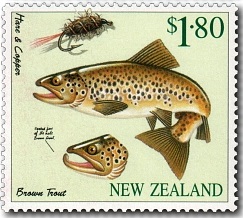There's new evidence that a widely used family of pesticides called neonicotinoids, already controversial because they can be harmful to pollinators, could be risky for insects and fish that live in water, too. The evidence comes from Lake Shinji, which lies near Japan's coast, next to the Sea of Japan.
Masumi Yamamuro, a scientist with the Geological Survey of Japan, says the lake is famous for its views of the setting sun. "It's amazingly beautiful," she says. Lake Shinji was also the site of thriving fisheries. People harvested clams, and eels, and small fish called smelts. But, Yamamuro says, about a decade ago, people noticed that fish populations had declined drastically. "I was asked to investigate the cause of this decrease," she says.
It was a puzzle. Yamamuro says the decline in fish populations did not seem to coincide with anything that people were keeping track of, like the lake's salinity, or levels of pollution. But she noticed something curious. One kind of fish in the lake was doing fine. This one had a more diverse diet; it could eat algae, as well as tiny insects in the water. The eels and the smelts that were dying off relied on insects and crustaceans for food. And that food source was vanishing. "So we concluded [that] something killed the food of the eels and the smelt," Yamamuro says. She and her colleagues now believe that they've identified the culprit: pesticides called neonicotinoids.
The evidence is circumstantial. Right around the time the fish started having problems, early in the 1990s, farmers near the lake started using these pesticides on their rice paddies to control insect pests. Yamamuro also found traces of these chemicals in some parts of the lake. Those levels, she thinks, are high enough to cause problems for tiny aquatic animals. Also, neonicotinoids kill insects, but not the algae that the thriving fish were eating. She and her colleagues just published their findings in the journal Science.
Source: NPR, November 2, 2019
https://www.npr.org/sections/thesalt/2019/11/02/775129512/controversial…

- Login om te reageren
